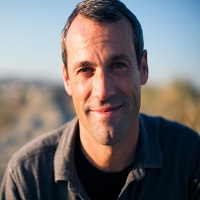The right to marry a person of one’s own sex is now recognized by the United States Supreme Court as a constitutional guarantee, mandated by the 14th Amendment’s promise of equal protection under the law. But just 10 years ago, even in California — even in San Francisco — no gay couple had ever been legally married. What would become a roaring, fast moving civil rights issue that crested in the Supreme Court’s landmark ruling this year began as a collaboration between San Francisco Mayor Gavin Newsom and Assessor-Recorder Mabel Teng.
It was February 2004, and Newsom had just returned from George W. Bush’s State of the Union speech a few nights earlier. In that speech, Bush emphatically expressed his opposition to gay unions, arguing that the “nation must defend the sanctity of marriage.” Angered, Newsom told Teng he wanted San Francisco to take the opposite tack.
Teng was surprised. “He had campaigned for transportation,” she recalled in a recent interview. “He was going to fix Muni (San Francisco’s notoriously dysfunctional above-ground rail system). He was going to fix homelessness. I was looking at him like: ‘Are you serious? You’re really going do this?’”
San Francisco City Hall in those days had only 10 computers to process marriage licenses. On a very busy day, clerks might see 50 couples. The “take a number” ticket dispenser maxed out at 99. But on the morning of Feb. 12, some 400 eager couples, drawn by Newsom’s promise that the city would begin issuing same-sex marriage licenses, lined up, spilling down the granite steps and out onto Polk Street. Fittingly, Teng’s team found rolls of tickets in every color of the rainbow.
At 11:06 a.m., Mabel Teng performed the first ceremony — between lesbian rights pioneers Phyllis Lyon and Del Martin. Teng was so nervous that she mixed up their names even though she knew the couple well. The formalities took but a few minutes before Teng pronounced them “spouses for life.” It was the first of many hundreds of weddings that Teng would perform over the next four frantic weeks.
From the beginning, San Francisco officials knew they were racing against time. The state did not authorize gay marriage in 2004, so eventually Sacramento was sure to step in to shut down the city’s boisterous experiment. “I knew they were coming. I knew they would stop us,” Teng said. So she and her office rushed to marry couples as quickly as possible. She organized a small army of volunteers: city workers who pitched in on their own time.
“We had to train as many people to conduct marriages as we could,” she said. “We had to find every corner in City Hall, every alcove in the rotunda, all the floors, even my office.” All told, Teng and her staff married 4,037 couples. It ended with Lisa Honig and Dale Schroedel, still clutching pink tulips, receiving the news of the court order that halted San Francisco’s ebullient moment.
For that month, though, San Francisco City Hall was transformed into a raucous wedding chapel. Florists delivered truckloads of free bouquets. Thousands of handfuls of rice were tossed aloft. Every few minutes, cheers echoed through the building and trickled out onto the sidewalk. “For those 29 days,” said Teng, “City Hall sounded like the happiest place on earth.”
Ten years later, what was then a novelty is now the law of the land. Teng is proud of the role she played in launching this chapter of civil rights history, and she’s gratified to see it enshrined in the Constitution itself. For many, that series of events has been stunningly swift, a rapid swing in public opinion hard to imagine a decade ago. Not for Teng. As she said: “It’s about time.”























